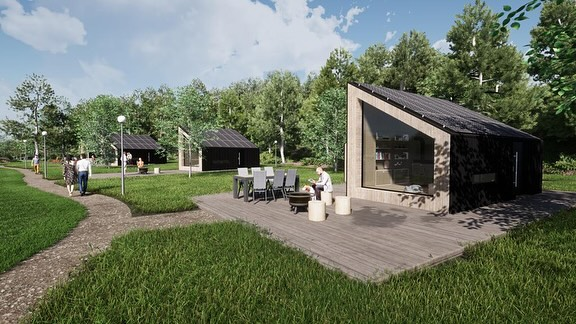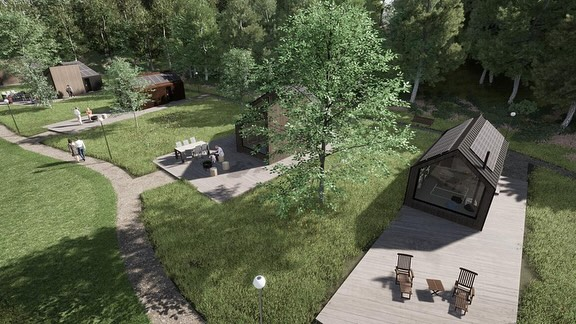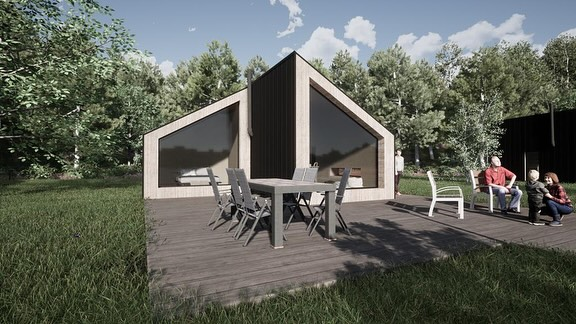A North Yorkshire architectural firm has introduced a new modular glamping pod concept aimed at providing a more sustainable and functional alternative to existing accommodation options in the outdoor hospitality sector.
Matt Ball Architecture, based in Richmond, has unveiled a design for compact, flat-pack camping units that can be expanded through modular additions and transported using standard logistics systems.
The core pod spans just 20 square meters and includes built-in features such as foldaway furniture, floor-sunk beds, and an integrated kitchen and living area.
The firm claims the design addresses several common criticisms of glamping pods currently on the market, particularly the lack of interior space and limited functionality.

According to Director Matt Ball, “The glamping pod market is saturated with low-quality, cramped units offering little in the way of functionality or luxury.”
According to TeessideLive, each pod can be tailored to the needs of individual landowners and operators. Optional add-ons include extra bedrooms, and the pods can be equipped with off-grid energy solutions such as solar panels and biomass burners.
These features allow for flexible placement in remote areas while aiming to reduce long-term energy costs and environmental impact.
“We love the idea and think there’s scope to develop this at scale,” Ball said, emphasizing the firm’s goal to produce a product that blends practicality with a modern aesthetic.
“These concepts offer just that, while also offering sustainable features such as solar panels and biomass burners to heat the pods and their water. It’s off-grid living, done with style.”

Matt Ball Architecture works on a range of projects across North Yorkshire and Teesside, from residential developments to adaptive reuse of historical buildings.
Ball noted, “It might be something big and bold or something for smaller spaces like the pods, but we can help translate what might seem like a crazy dream into something real, something that can be built and cherished.”
For professionals in the outdoor hospitality industry, the appeal lies in the combination of scalability, customizability, and lower upfront construction costs.
Modular units can be added based on demand, and flat-pack delivery could reduce transportation expenses and simplify installation—key concerns for campground and glamping operators looking to expand or upgrade facilities in rural or off-grid locations.
No launch date has been announced, but the concept is available for discussion with interested landowners or operators seeking alternatives to conventional glamping accommodations.
Featured image by Matt Ball Architecture via facebook.com


